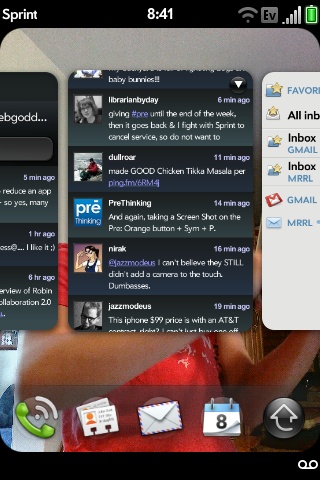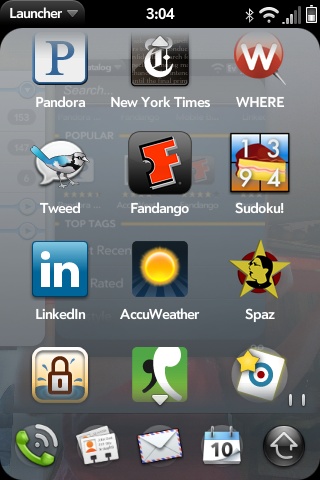I was recently catching up on my blog reading, after heading to the ALA conference in Chicago for a week, and came across Leo Babauta’s post on Zen Habits called “What Google Chrome OS Means For Cloud Computing“. Reading through his thoughts, I find that they are pretty complementary to mine – the cloud is coming and will be the default method of computing before too long. Leo discusses the advent of online-only apps, such as Google Apps, and says:
These apps are lightweight but powerful. They aren’t as feature rich as desktop apps, but here’s what many critics don’t understand: in today’s (and tomorrow’s) computing world, they don’t have to be.
I’d like to take that a step farther and say that they can’t be. Desktops and laptops – even netbook laptops – are fairly expensive in the general scheme of things. To get truly ubiquitous computing, we’re going to have to be able to access the Internet – and our data – from much cheaper and less powerful machines than the expensive behemoths we have available to us now. It’s starting with cell phones with full web browsers and always-on Internet connectivity, and will continue until just about everything we touch has some form of connection to the Internet. At that point, cheap little low-powered devices to connect to our data in the cloud will be commonplace. They won’t be able to run MS Office -and even if they could, there is no guarantee that their owners will be able to afford the crazy MS pricing structure. They might not even be able to run OpenOffice – but they will be able to get to the Internet and access online documents and data.
Leo goes on to talk about the benefits of storing our information in the cloud – but that is something we are seeing now. Just as flash drives are getting seriously cheap, I’ve managed to make it so that I don’t ever need one! Any docs I create on my computer are stored in my Dropbox account (accessible from anywhere with an Internet connection) but most of my documents are in one of my 3 Gmail accounts (personal, work & school) and are available to me on even more devices – because I don’t have to have MS Office installed to read/edit them.
He finishes his article with a discussion on privacy and, again, I’m going to agree with him. If Google really wants to mine my rather boring documents so that they can place ads I’m not going to pay attention to (but only in my personal accounts – school & work are ad-free), I’ll survive. It’s not like there is a person actually doing the mining anyway – it’s all automated! As for the security/privacy concerns… I have a pretty good handle on computer security, but I’m nowhere near as good as the people that manage the security for Google – and I know it. While I can take my steps to secure my personal information on my personal computer, it will never be quite as effective as the steps that Google, with all of their big brains and expensive equipment, can take and so my data may well be more secure in the cloud. I know that there are a few stories out there about cloud-based document providers letting private documents become public for short periods of time, but if it is a document that is super-secret (or superseekrit, as the cool kids might say) is being stored online and unencrypted, well, you can’t really place all the blame on the cloud provider, can you?
As a final note, I was interviewed on camera for the TechSource blog (the post is not up as of this writing) during ALA and asked where I thought libraries would be in 20 years and what we’d be doing. My answer stayed pretty close to my current passions – we will be conduits to the cloud, providing tools and information and resources so that people can create, share, mashup and consume the data that that the cloud will hold. We’ll still be checking out books and providing reference services and gassing up the bookmobile for remote visits and all of that as well – it’ll take longer than 20 years to completely stamp out the paper book, certainly, but a large part of our mission will be to connect our patrons/users/customers to the wealth of data and creative possibilities that will live in the cloud.

